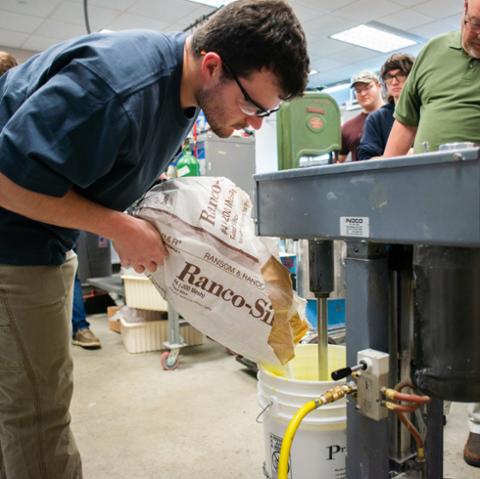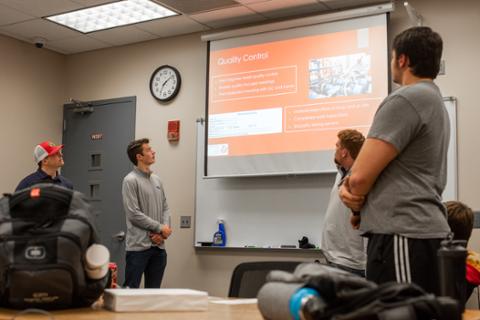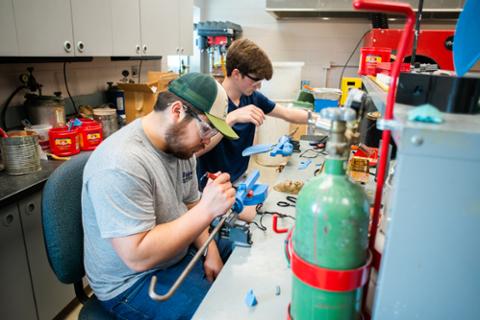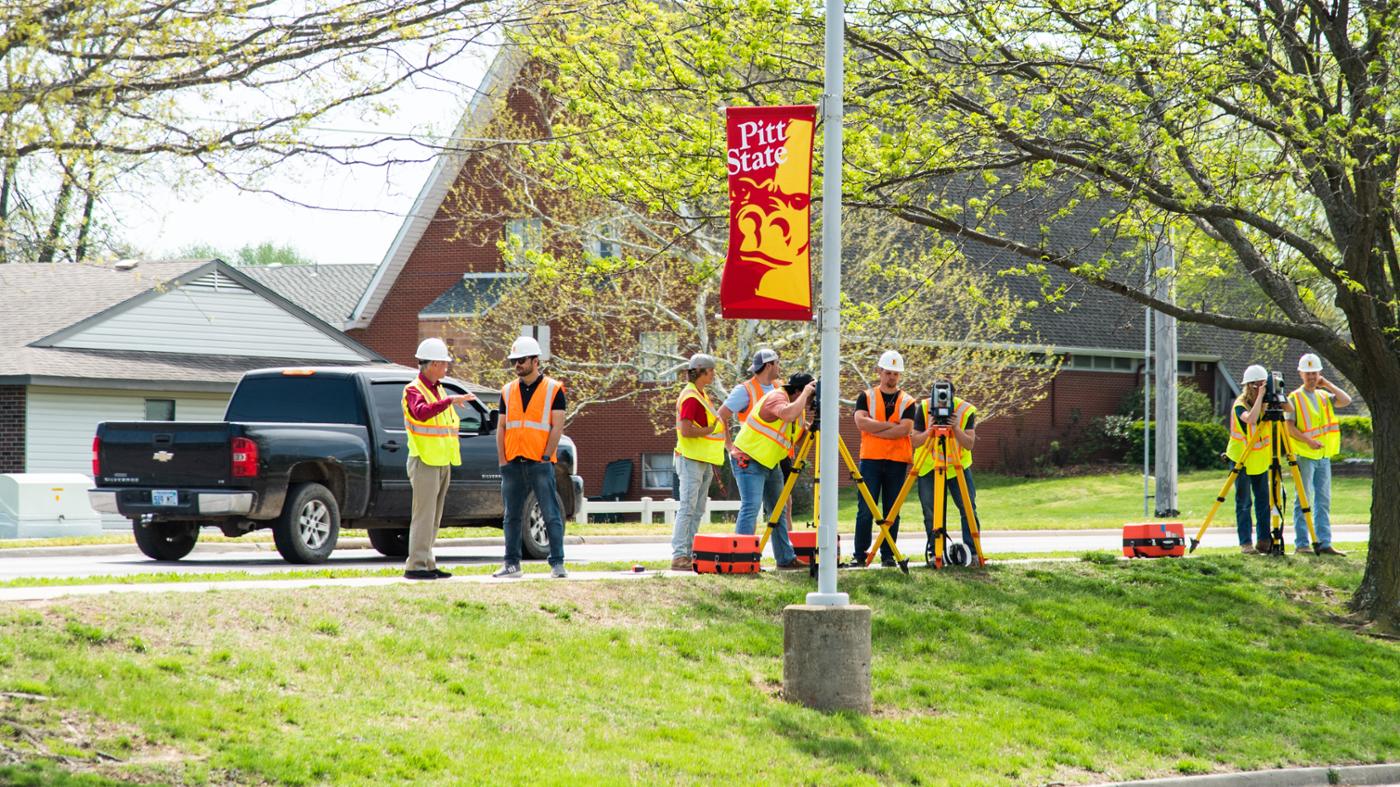Construction Engineering Technology Major
Apply engineering principles to construction projects. Our students gain knowledge of construction procedures and codes as well as techniques of materials testing, surveying, and more.Expert Faculty with Industry Experience
Our faculty members, who are experienced professionals in the field, will guide you through practical exercises and projects that simulate real construction scenarios.
Guest Demonstrations
Students work with leading construction companies, gaining invaluable insights into the industry. These experiences enhance your skills, build professional networks, and increase your employability upon graduation.
Design Construction Structures
Apply creativity in the design of construction systems, components, or processes. Master the appropriate design software including Excel, Autocad, Primavera, and Timberline.
ABET Accredited
The Bachelor of Science in Construction Engineering Technology program is accredited by the Engineering Technology Accreditation Commission (ETAC) of ABET, under the commission’s general criteria and specific program criteria for Construction Engineering Technology and similarly named programs.


Through internships, cooperative education programs, and industry partnerships, you will have opportunities to apply your knowledge to real-world construction projects.

Access to dedicated labs in mapping software, material testing/structures, surveying, equipment simulators, electrical, and mechanical.





Company Days in the fall with +100 businesses
job placement rate reported by grads
starting salaries recorded by recent graduates
Construction Expo in the spring with tool giveaways, networking, and live demos.
Construction Engineering Technology Careers
Our graduates work for various employers like companies general or specialty contractors, engineering firms, and government agencies. Typical career paths include:
- Project managers: coordinate and oversee construction projects, ensuring they meet deadlines and budgetary requirements.
- Project engineers: design and implement technical plans, providing engineering support to ensure successful project execution.
- Estimators: assess project costs by analyzing materials, labor, and other factors providing accurate budget estimates.
- Site managers: supervise daily construction activities, ensuring safety, efficiency, and adherence to project specifications.
- Superintendents: manage overall project operations, overseeing site teams and ensuring successful project completion.
- Field engineers: troubleshoot and resolve on-site technical issues, ensuring construction plans are executed accurately.
- Quality control/testing professionals: monitor and assess construction materials and processes to ensure compliance with industry standards.
- Surveyors: use advanced tools to measure and map construction sites, providing crucial data for project planning and execution.
Additional information
Construction Engineering Technology Degree Map download

